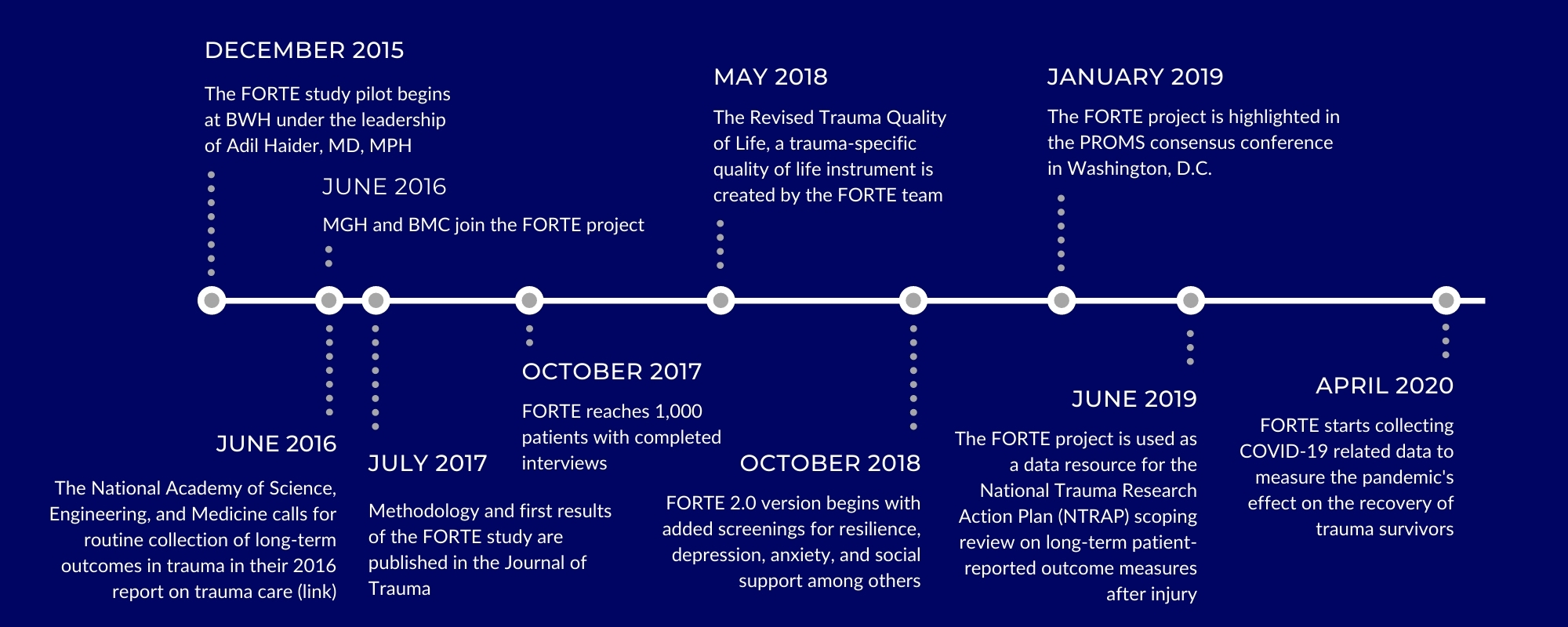FORTE | Redefining Trauma Recovery
Overview
Every year more than three million people are hospitalized from traumatic injuries in the U.S. While 96% of trauma patients survive, many suffer long-term consequences as a result of their injuries. Currently, there is no routine collection of long-term outcomes after injury in the U.S.
In an effort to understand what happens to trauma patients after discharge, and to improve their outcomes in the long-term, the Functional Outcomes and Recovery after Trauma Emergencies (FORTE) project was created in 2015. The FORTE project is a multi-institutional research collaboration that collects, analyzes, and interprets long-term patient-centered outcomes after traumatic injury in the U.S.
CONTACT INFORMATION:
Co-Investigator: Juan Herrera-Escobar (jherreraescobar@bwh.harvard.edu)
Transform the collection, analysis and interpretation of long-term patient-centered outcomes after traumatic injury through research that informs policy and program development in the United States.
Create knowledge. Develop new measurement tools and techniques for routine collection of long-term patient-centered data
Disseminate knowledge. Demonstrate the value of long-term patient-centered data in trauma and advocate for their inclusion in national trauma registries
Transform practice. Identify best practices to improve the efficiency and quality of trauma care and mitigate disparities in long-term outcomes
Collaborate. Build partnerships at the local, national and international levels to achieve our mission
A Patient-Centered Approach
The FORTE team has developed a five-step approach to realize their goals:
Contact trauma survivors at 6- and 12-months post-injury to collect long-term outcomes
Merge patients’ interview data with institutional trauma registry data among other data sources to build a comprehensive long-term outcomes trauma registry
Design research studies aligned with priority areas
Analyze and interpret long-term trauma outcomes data
Disseminate knowledge through publications and presentations at the local, national, and international level
The Essentiality of Pursuing Long-Term Outcomes
Long-term outcomes data in trauma will affect care on multiple levels:
- Individual: Improve patient-provider communications regarding expectations and recovery
- Hospital: Define evidence-based patient-centered targets to improve quality of trauma care
- Policy: Assist local and national policy in program design to support those with disability after injury


